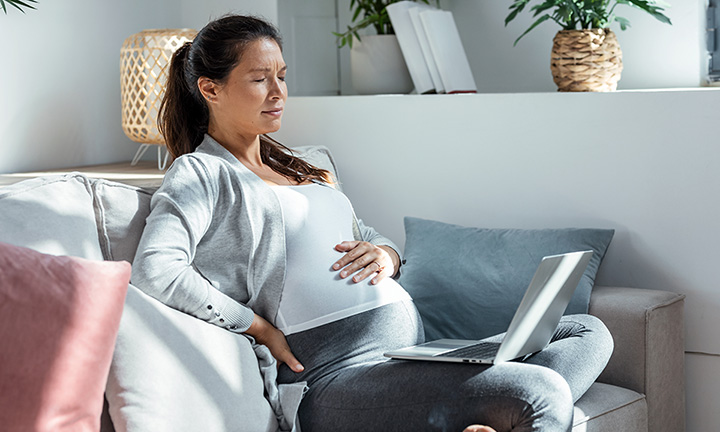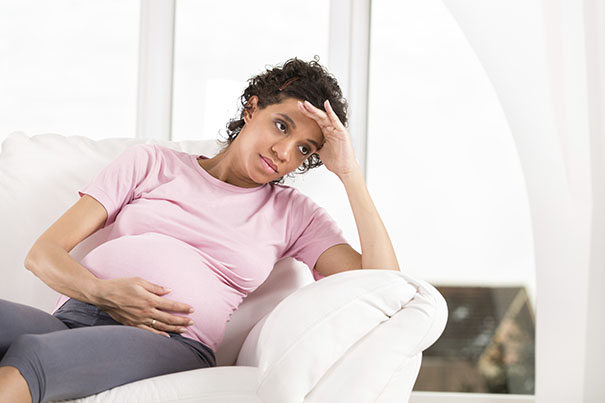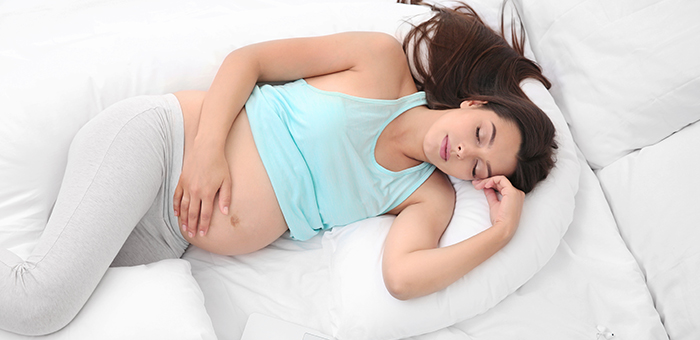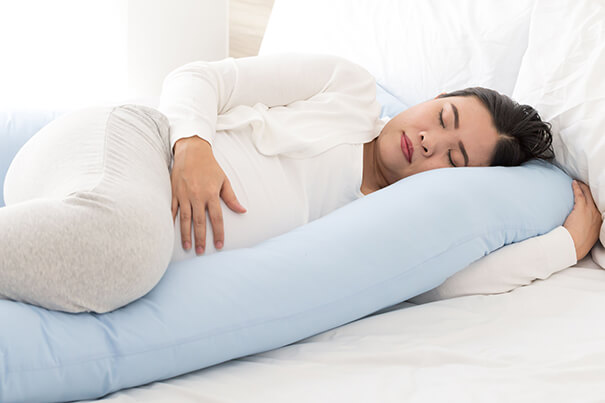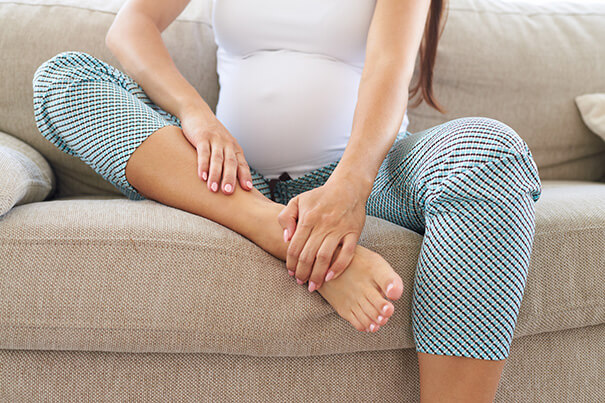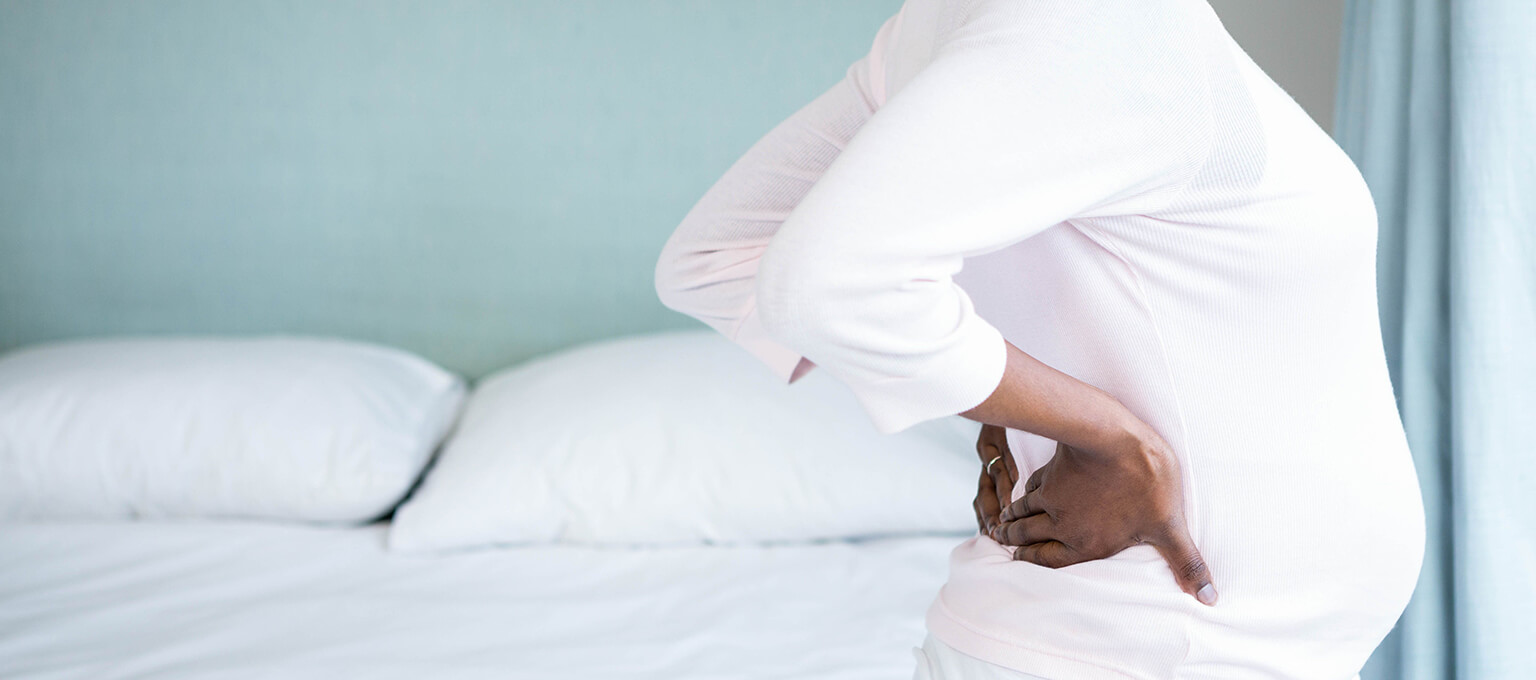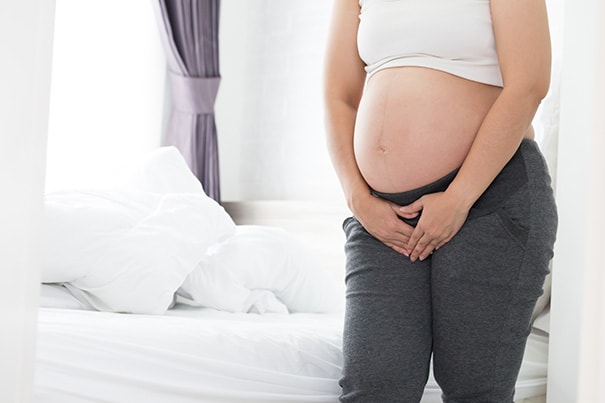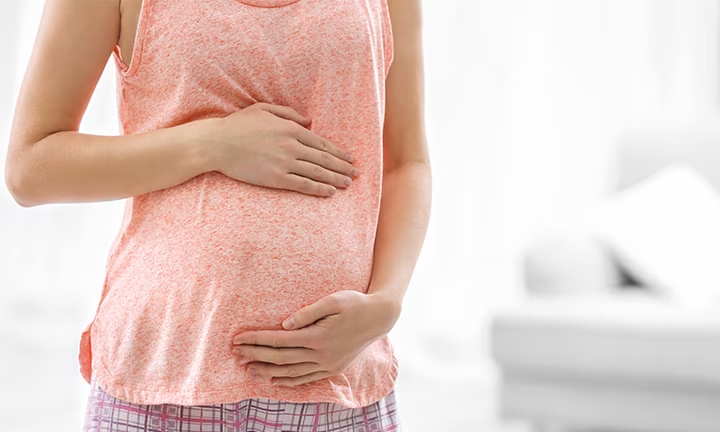
Diarrhoea in Pregnancy: Causes, Treatment and When to Seek Help
Experiencing diarrhoea during pregnancy can be uncomfortable, but it’s a common issue for many pregnant people. Changes in hormones, diet and digestion can sometimes lead to pregnancy-related diarrhoea, while infections or food intolerances may also be a cause. Understanding why diarrhoea happens and how to manage it is essential for staying comfortable and healthy during pregnancy.
Key Takeaways:
Read on to learn how to manage diarrhoea safely and effectively during your pregnancy.
Is Diarrhoea an Early Sign of Pregnancy?
While diarrhoea isn’t generally related to pregnancy or a sign of pregnancy in itself, you may experience changes to your bowel movements in the first trimester.
For example, early in your pregnancy, hormonal changes can cause your digestive system to slow down, often leading to constipation.
Changes to your diet and nutrition during pregnancy may result in changes in your bowels, too. For instance, if you’re eating more fibre now or taking pregnancy vitamins, these changes can affect the frequency and consistency of your bowel movements, potentially leading to pregnancy-related diarrhoea.
Drinking plenty of water can help with constipation and is also essential to help replenish the fluids lost by having diarrhoea, especially when you’re pregnant. Talk to your midwife or doctor if you’re having trouble with digestive issues such as constipation or diarrhoea in your pregnancy.
Symptoms of Diarrhoea in Pregnancy
The most common symptoms associated with diarrhoea can include:
If you’re experiencing diarrhoea during pregnancy, you should monitor your symptoms and contact your GP if they worsen or persist for longer than 3 days, or you have a fever, signs of dehydration or blood in your stool.
Is it OK to Have Diarrhoea While Pregnant?
Although it might be worrying to experience stomach cramps and diarrhoea, whether in early pregnancy or later, in most cases the diarrhoea will be unrelated to your pregnancy. It’s most commonly triggered by a tummy bug (gastroenteritis), but other causes include a food allergy, intolerance, or food poisoning.
If your diarrhoea is mild, it will likely get better on its own without any concern; however, if it persists or is severe, you should contact your GP.
The Causes of Diarrhoea During Pregnancy
Whether diarrhoea strikes in pregnancy or just before or afterwards, many things can cause it. Here are some of the most common causes it’s worth knowing about:
Viral infection
Viral infections are among the most common causes of diarrhoea in pregnancy. One of these, norovirus, is sometimes known as the ‘vomiting bug’. Besides the diarrhoea, viral tummy bugs may come with some or all of these other symptoms:
Viruses like norovirus are transmitted easily through close contact with other people who have it, or from touching surfaces or objects that have been infected. To lower your chances of catching it, wash your hands frequently, and avoid sharing tableware and touching your mouth after touching anything else.
Keep in mind that alcohol-based hand gels don’t kill norovirus, so always use soap and water for handwashing.
Food Poisoning
Even during pregnancy, anyone can fall victim to food poisoning. If you do get food poisoning while pregnant, you may experience symptoms similar to those of a viral infection.
The good news is that most cases of food poisoning go away on their own within a week, but it's always best to check in with your doctor if you think your diarrhoea was caused by something you ate.
Reduce your chances of getting food poisoning by avoiding certain risky foods during pregnancy. For example, avoid unpasteurised dairy products and undercooked or raw seafood. If you’re eating food containing raw or partially cooked hen eggs, make sure it’s made with eggs produced under the British Lion or Laid in Britain scheme.
Be extra careful about how the food you eat is prepared. Always wash your hands before preparing any food, and make sure all the surfaces in your kitchen have been cleaned with hot, soapy water.
Some forms of food poisoning can lead to pregnancy complications that may affect your foetus’s development. That’s why, if you have any symptoms of food poisoning (nausea, vomiting, and/or diarrhoea) during pregnancy, it’s best to see a doctor as soon as possible.
Irritable Bowel Syndrome
If you’re living with irritable bowel syndrome (IBS) or frequently experience the symptoms of IBS, such as cramps, bloating and frequent swings between diarrhoea and constipation, talk to your doctor about how you can manage this condition during pregnancy.
The causes of IBS aren’t fully understood, but it’s believed that triggers can include stress or eating certain foods. It’s also possible that IBS can run in families.
Traveller’s Diarrhoea
If you plan on travelling while pregnant, continue to follow the guidelines on foods to avoid for pregnant people.
Before you head off, it’s a great idea to research any extra precautions you need to take, depending on where you're going. Although each travel destination is unique, here are some general recommendations that may be relevant:
If you do get traveller’s diarrhoea, drink plenty of fluids to keep from getting dehydrated. Avoid dairy products and caffeinated drinks, which might make diarrhoea worse. To be on the safe side, you may want to see a doctor before you travel, in case you need anti-diarrheal medication or some other treatment.
Other Causes of Diarrhoea
Other potential causes of diarrhoea may include:
Diarrhoea in Each Pregnancy Trimester
While diarrhoea is not typically associated with pregnancy, it can still occur at various stages for different reasons, including hormonal changes and dietary shifts. Here’s a closer look at how it may affect each trimester.
First Trimester
Diarrhoea in early pregnancy, during the first trimester, may occur due to hormonal fluctuations, pregnancy vitamins or dietary adjustments that can all contribute to digestive changes. However, if diarrhoea is persistent, accompanied by severe cramping or leads to dehydration, consult your doctor.
For more on antenatal care, check out our full guide.
Second Trimester
While diarrhoea in the second trimester of pregnancy is less common, it may still occur due to changes in digestion, tummy bugs or food sensitivities. Vomiting and diarrhoea during pregnancy may also happen, sometimes due to a viral infection or another underlying condition. If symptoms persist, cause dehydration or are accompanied by fever, consult your doctor.
Third Trimester
Some individuals experience diarrhoea during the third trimester, especially as they approach their due date. Diarrhoea at 36 weeks or later may be a sign that labour is near, as the body naturally prepares for delivery. However, vomiting and diarrhoea in the third trimester of pregnancy could also be caused by a virus or another condition that requires medical attention. If diarrhoea is accompanied by fever, severe cramps or dehydration, consult your healthcare provider.
Does Diarrhoea Mean Labour Is Near?
Experiencing diarrhoea in pregnancy can sometimes be an early sign that labour is approaching. As your body prepares for childbirth, hormonal changes may stimulate the bowels, leading to loose stools or diarrhoea. This is a common occurrence and can happen in the days leading up to labour or at its onset.
It’s important to note that diarrhoea isn’t always a guaranteed sign that labour is imminent. It could be caused by other factors, as we mentioned earlier. If you’re experiencing diarrhoea in late pregnancy, it’s a good idea to look out for other signs of labour, such as:
Is Diarrhoea a Sign of Premature Labour?
Having diarrhoea on its own isn’t necessarily a sign that you’re going into labour, but mild abdominal cramps or period-like pains with or without diarrhoea before week 37 of pregnancy could be a sign of premature labour.
Other signs of premature labour can include regular contractions, period-like pains, unusual back pain, your waters breaking or losing your mucus plug.
Call your midwife or maternity unit immediately if you’re less than 37 weeks pregnant and think you might be going into premature labour.
Treatment for Diarrhoea in Pregnancy
With diarrhoea, you can lose a lot of body fluid and be in danger of dehydration, so if you have diarrhoea, especially during pregnancy, try to drink plenty of water.
Here are some general tips on how to treat diarrhoea in pregnancy:
When to Contact Your Doctor
Call 111 or see your doctor if:
FAQS AT A GLANCE
There is no specific timeframe for diarrhoea before labour. It may occur as your body prepares for delivery, but it is not a guaranteed sign. Consult your GP if you have any concerns.
The Bottom Line
Diarrhoea in pregnancy can sometimes be a normal response to hormonal or dietary changes, but it may also indicate a more serious issue, such as food poisoning. In addition to being uncomfortable, diarrhoea can lead to dehydration, so it's important to consult your doctor as soon as possible. With proper treatment and plenty of rest, you should feel better soon.
If you’re currently on your pregnancy journey, now is a great time to download the Pampers Club app to enjoy rewards on Pampers nappies and wipes purchases, made ahead of meeting your new arrival. Our app also provides access to exclusive expert advice and guidance throughout your pregnancy and parenting journey.
- NHS-Fit for Travel: Advice for Pregnant Travellers
- NHS: Common Health Problems in Pregnancy
- NHS: Constipation
- NHS: Dehydration
- NHS: Diarrhoea and Vomiting
- NHS: Diarrhoea
- NHS: Diarrhoea and Vomiting
- NHS: Early Signs of Labour
- NHS: Ectopic Pregnancy
- NHS-Fit for Travel: Food and Water Precautions
- NHS: Food Safety and Pregnancy
- NHS: Food Poisoning
- NHS: Foods to Avoid in Pregnancy
- NHS: Irritable Bowel Syndrome
- NHS: Norovirus (Vomiting Bug)
- NHS: PMS (Premenstrual Syndrome)
- NHS: Premature Labour and Birth
- NHS: Signs of Labour




